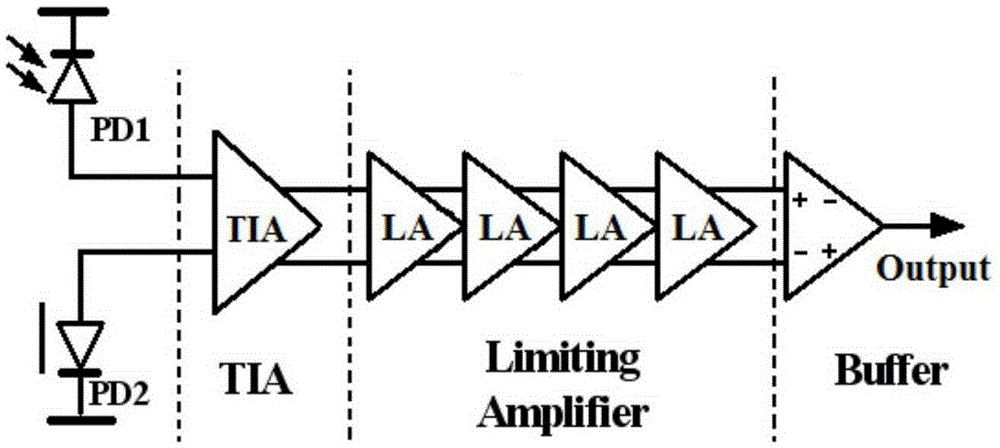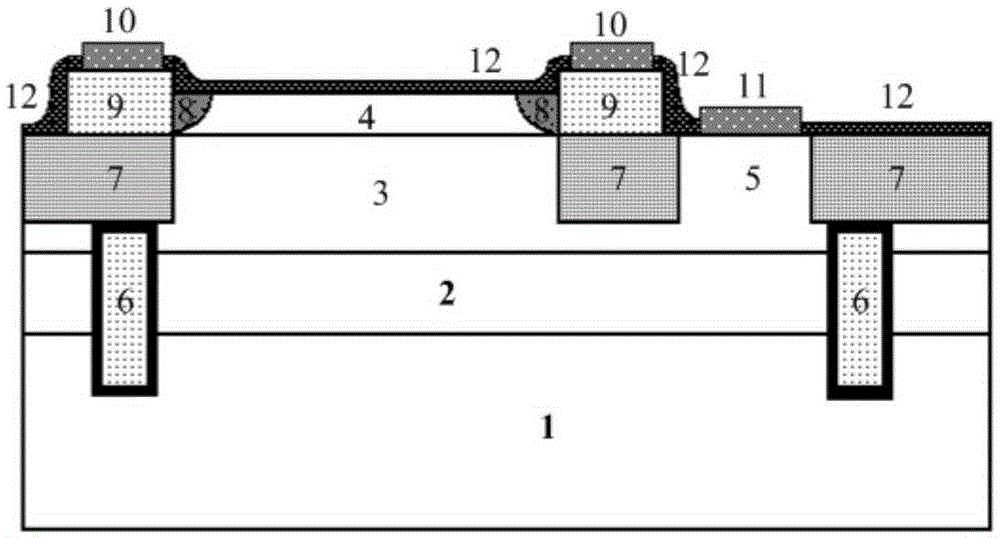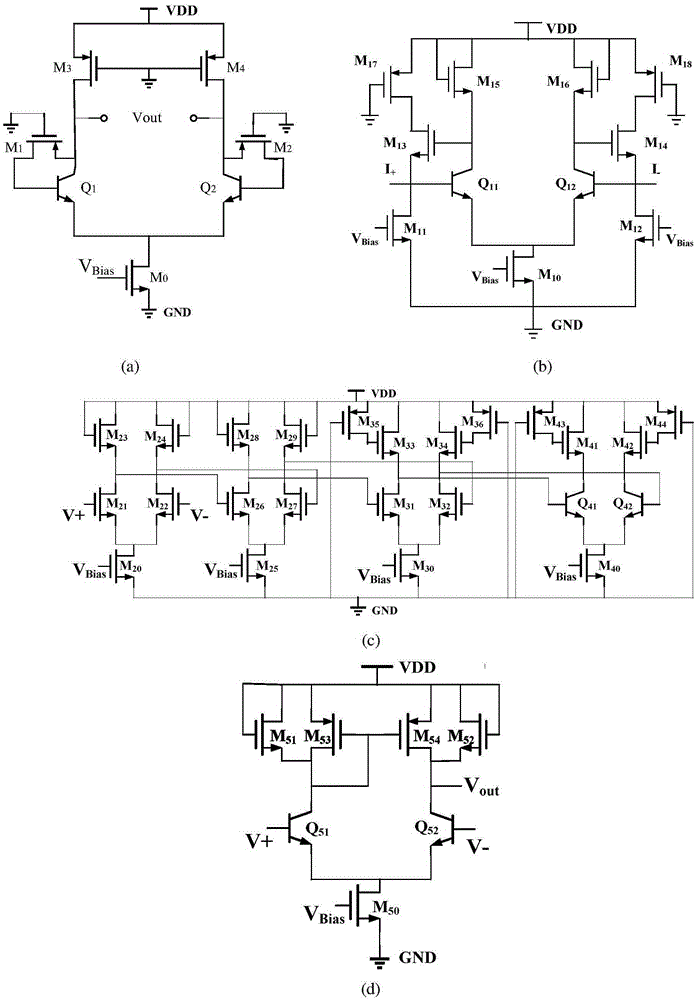Optoelectronic integrated receiver based on standard sige BiCMOS process
A photoelectric integration and receiver technology, applied in the direction of electromagnetic receivers, radiation control devices, etc., can solve the problem that photodetectors are difficult to take into account the performance of speed and responsivity at the same time, and limit the overall performance of single-chip integrated optical receivers, photoelectric integrated receivers Problems such as not entering the practical stage have achieved good application prospects, enhanced functions, and high responsiveness
- Summary
- Abstract
- Description
- Claims
- Application Information
AI Technical Summary
Problems solved by technology
Method used
Image
Examples
Embodiment Construction
[0024] 1. The photodetector proposed by the present invention can make full use of the structural characteristics of the SiGeBiCMOS process to construct various detector structures such as PN junction, PIN, MSM and phototransistor, and can also use the silicon germanium epitaxial layer to improve the responsivity of the detector.
[0025] 2. The optical receiver front-end circuit based on the standard SiGeBiCMOS process proposed by the present invention comprises:
[0026] Two photodetectors with completely symmetrical structures, one of which converts the optical signal input by the optical fiber into a current signal, and the other detector is used to maintain the input load balance of the differential circuit and increase the bandwidth of the receiver;
[0027] A transimpedance amplifier with a fully differential structure, its function is to convert the current signal output by the photodetector into a voltage signal, and perform preliminary amplification;
[0028] A set o...
PUM
 Login to View More
Login to View More Abstract
Description
Claims
Application Information
 Login to View More
Login to View More - R&D
- Intellectual Property
- Life Sciences
- Materials
- Tech Scout
- Unparalleled Data Quality
- Higher Quality Content
- 60% Fewer Hallucinations
Browse by: Latest US Patents, China's latest patents, Technical Efficacy Thesaurus, Application Domain, Technology Topic, Popular Technical Reports.
© 2025 PatSnap. All rights reserved.Legal|Privacy policy|Modern Slavery Act Transparency Statement|Sitemap|About US| Contact US: help@patsnap.com



